21 Ways to Increase Conversions on Your Website
You're driving traffic to your website, but your analytics show <1% conversion.
Visitors are arriving but they leave without taking action. Sound familiar?
You're not alone in this challenge—according to recent industry benchmarks, the average website conversion rate globally sits around 2%.
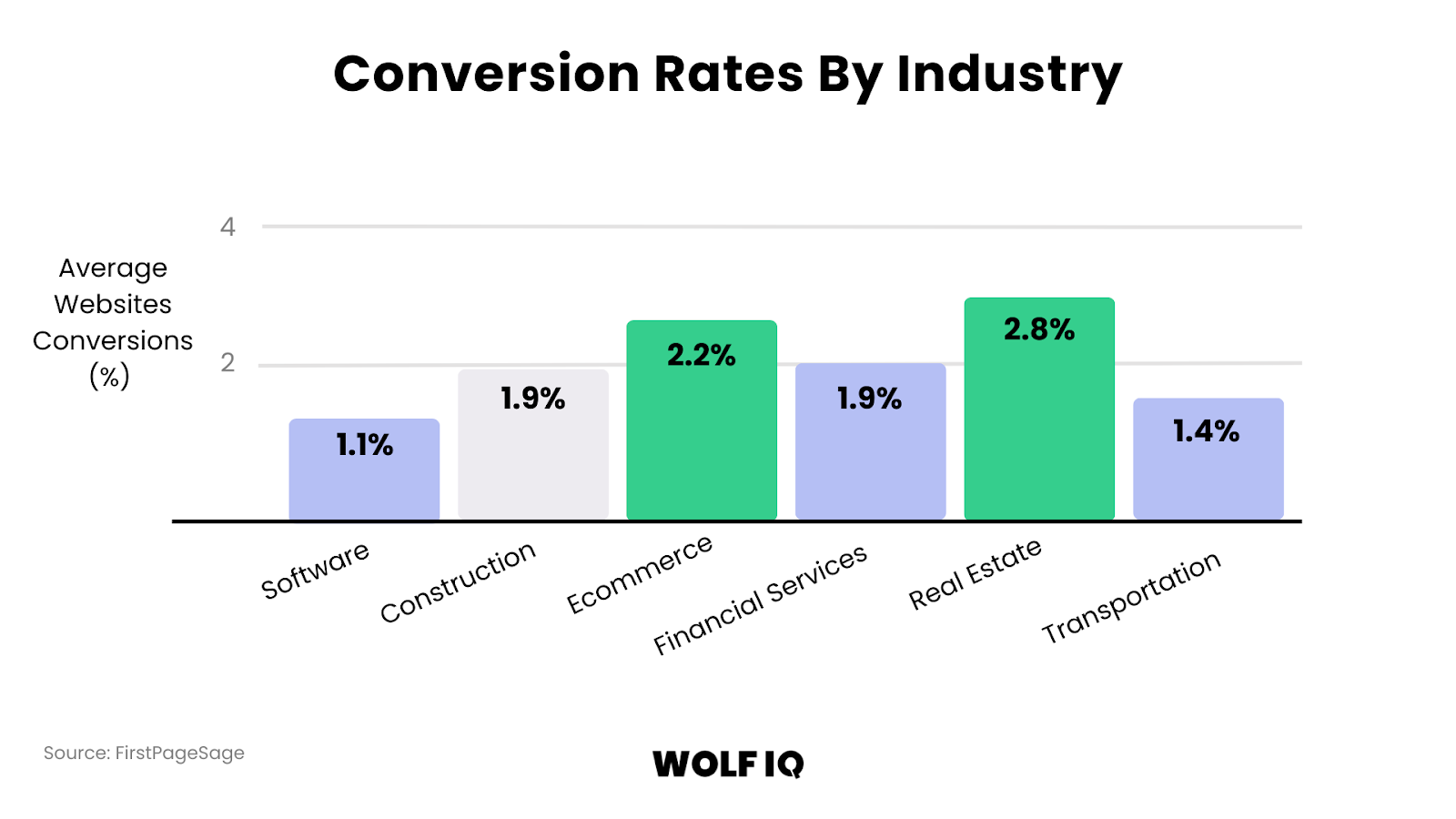
That means for your average website, 98 people out of 100 visit and take no further action.
The good news is that most often, you don't need a redesign or a huge budget. You just need the right changes in the right places.
This comprehensive guide presents 21 battle-tested strategies that successful small businesses use to convert website visitors into paying customers.
The opportunity is huge. If your website currently converts at 2% and you increase that to 3% through strategic optimisation, you've just increased your revenue by 50% without spending a single additional dollar on traffic.
Key Takeaways
- Prioritise the quick wins first: The highest impact, lowest effort foundation strategies: Google Business Profile optimisation, social proof, and implementing heat mapping/analytics.
- Speed and mobile UX are the highest priority: Website speed and flawless mobile optimisation are non-negotiable, as users abandon sites that are slow or difficult to use.
- Friction kills form completion: Reducing form fields (e.g. from 11 to 4) can boost your form completion and conversion rates.
- Social proof lifts conversion rates: Strong social proof (testimonials, reviews, and badges) builds immediate trust and authority, leading to higher conversion rates.
- Recover abandoning leads for more revenue: Implementing exit-intent popups is highly effective at recovering visitors about to abandon your site.
- The conversion journey continues post-sale: Optimising the ‘Thank you’ page with clear next steps, upsells, and referral prompts will drive an increase in customer lifetime value.
How to use this guide
Each strategy includes a comprehensive rating system to help you prioritise based on your specific situation:
The strategies are organised into four strategic sections:
- Trust Foundations for immediate credibility wins
- User Experience & Design for core optimisation
- Psychology & Persuasion for advanced influence tactics,
- Technical & Performance for backend improvements.
Implementation Priority Guide
Start with strategies that match your current stage, resources, and goals.
Need Help? If you're overwhelmed, start with just #1, #2 and #10. These three strategies alone can transform your website’s conversion within 30 days.
Wolf IQ Tip: Pick the 2‑3 items with the highest impact and low effort from this table, implement them in 30 days and measure results before tackling the rest. Our clients who do this see wins faster and build momentum.”
#1. Trust Foundations
1. Optimise Your Google Business Profile
What it is: Your Google Business Profile serves as a critical trust signal that appears in local search results and provides essential credibility information before visitors even reach your website.
Why it works: Research shows that 76% of consumers who search for local businesses visit a physical location within 24 hours, and 28% of those searches result in purchases.
For Australian businesses, a complete Google Business Profile acts as a powerful pre-conversion trust signal. When potential customers see verified business information, positive reviews, and local presence indicators, they arrive at your website with higher intent and greater trust, leading to significantly improved conversion rates.
In our audit work at Wolf IQ we frequently find that the biggest trust gap is a missing local signal (Australian phone number + address) rather than complex trust badges—a simple fix that often lifts form fills by 10‑20% within weeks.
How to implement:
- Step 1: Claim and verify your Google Business Profile at business.google.com using your Australian business address
- Step 2: Complete every section, including business name, address, phone number, website, hours, categories, and detailed business description
- Step 3: Upload high-quality photos showcasing your business location, team, products, and services (minimum 10 photos)
- Step 4: Actively encourage satisfied customers to leave reviews and respond professionally to all reviews within 24 hours
- Step 5: Post regular updates, special offers, and business news to maintain an active, engaged profile
Regional Australian markets often have less competition, making it easier to dominate local search results and establish trust before competitors.
Tools you'll need: Google Business Profile dashboard, smartphone camera for photos, review management system (Smart Reviews, Podium, Birdeye, or Reputation.com), social media scheduling tools
Pro tip: Use Google Posts to share weekly updates about your business, including behind-the-scenes content, team spotlights, and customer success stories. Australian consumers particularly appreciate authentic, personal content that demonstrates genuine local business operations.
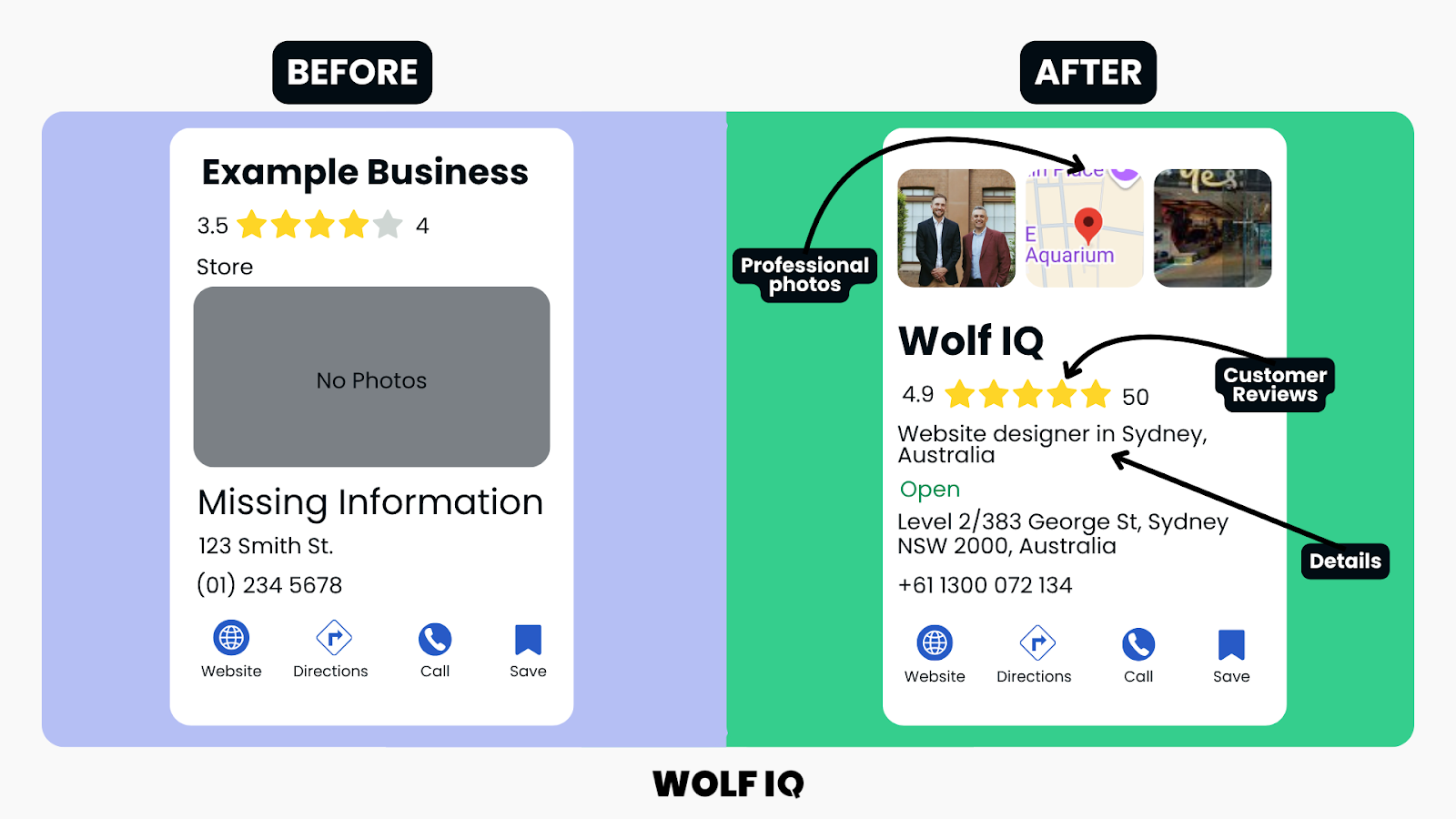
2. Add Social Proof Above the Fold
What it is: Strategic placement of customer testimonials, reviews, and trust indicators in the most visible area of your website to immediately establish credibility with new visitors.
Why it works: Social proof is one of the most powerful psychological drivers of conversion, with studies showing that testimonials alone can increase conversion rates by up to 34%.
Australian consumers are particularly influenced by peer recommendations and authentic customer experiences.
How to implement:
- Step 1: Collect compelling testimonials from satisfied Australian customers, focusing on specific results and outcomes
- Step 2: Create visually appealing testimonial displays with customer photos, names, and locations (with permission)
- Step 3: Position testimonials prominently above the fold on your homepage and key landing pages
- Step 4: Include specific metrics and results in testimonials (e.g., "Increased sales by 40% in 3 months")
- Step 5: Rotate testimonials regularly to maintain freshness and relevance
Tools you'll need: Testimonial collection tools (Boast.io, Endorsal, or VideoAsk), graphic design software, customer feedback platforms, photo editing tools
Pro tip: Include testimonials that address common objections or concerns specific to your industry. For example, if you're a service business, include testimonials that speak to reliability, communication, and results delivery—key concerns for Australian consumers.
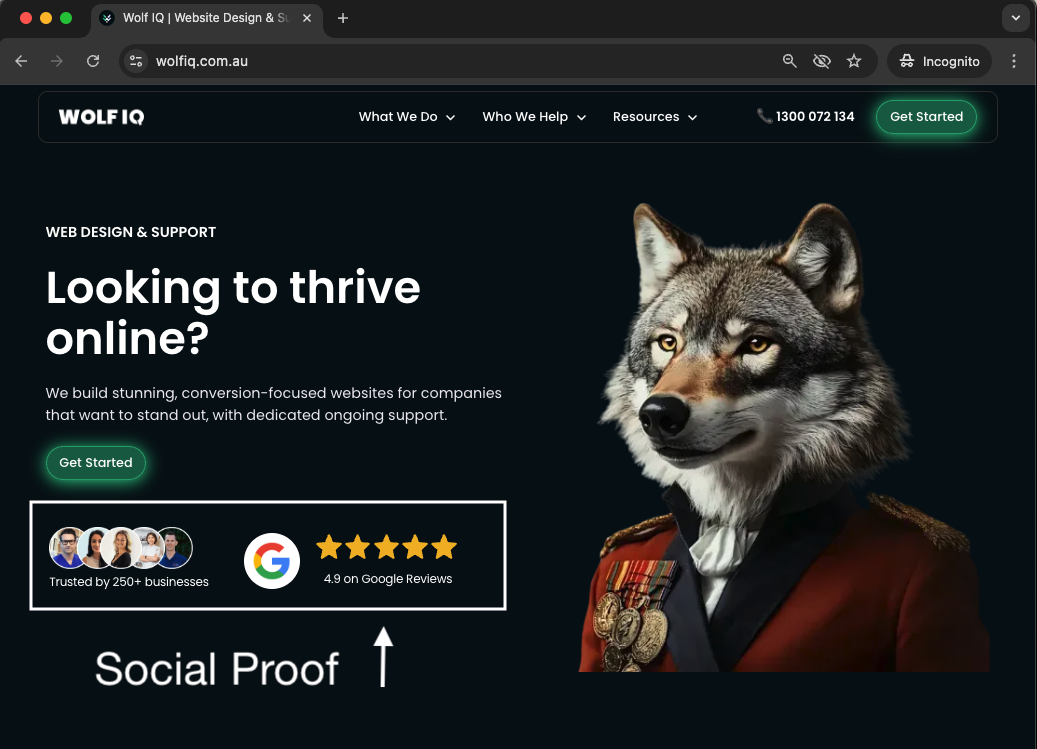
3. Display Badges and Trust Signals
What it is: Prominent display of security certificates, payment protection badges, and industry certifications that signal safety and legitimacy to potential customers.
Why it works: Australian consumers are increasingly security-conscious when making online purchases, with 67% citing security concerns as a primary barrier to online conversion.
Displaying trust badges and security signals can dramatically reduce hesitation. In fact, adding a simple checkout badge boosted conversions by 42%..
How to implement:
- Step 1: Obtain SSL certificate and display the security padlock prominently in your browser address bar
- Step 2: Add payment security badges from providers like PayPal, Stripe, or major credit card companies
- Step 3: Display relevant Australian industry certifications or memberships (e.g., Australian Business Number, industry association memberships)
- Step 4: Include privacy policy and terms of service links prominently on all conversion pages
- Step 5: Add money-back guarantee badges or satisfaction guarantee seals where applicable
Tools you'll need: SSL certificate provider, payment processor badges, graphic design tools, and legal compliance documentation
Pro tip: Position trust badges near your primary call-to-action buttons and checkout processes where security concerns are highest. Include a brief explanation of what each badge means to educate customers about the protection they're receiving.

4. Optimise Your Value Proposition
What it is: A clear, compelling statement that communicates exactly what makes your business unique and why Australian customers should choose you over competitors.
Why it works: Your value proposition is often the first thing visitors evaluate when deciding whether to engage with your business. According to data from Unbounce, strong value propositions increase conversion rates by up to 90% by immediately addressing the visitor's primary question: "What's in it for me?".
How to implement:
- Step 1: Identify your unique selling points that matter most to Australian customers
- Step 2: Research competitor value propositions to identify differentiation opportunities
- Step 3: Craft a clear, benefit-focused headline that can be understood in 5 seconds or less
- Step 4: Support your main value proposition with 3-4 specific benefits or proof points
- Step 5: Test different value proposition variations to determine which resonates most with your audience
Tools you'll need: Customer survey tools, competitor analysis tools, A/B testing platform, copywriting resources
Pro tip: Use the "So what?" test for your value proposition. After stating each benefit, ask "So what?" until you reach the core emotional or practical benefit that matters to Australian customers. Focus on outcomes rather than features.
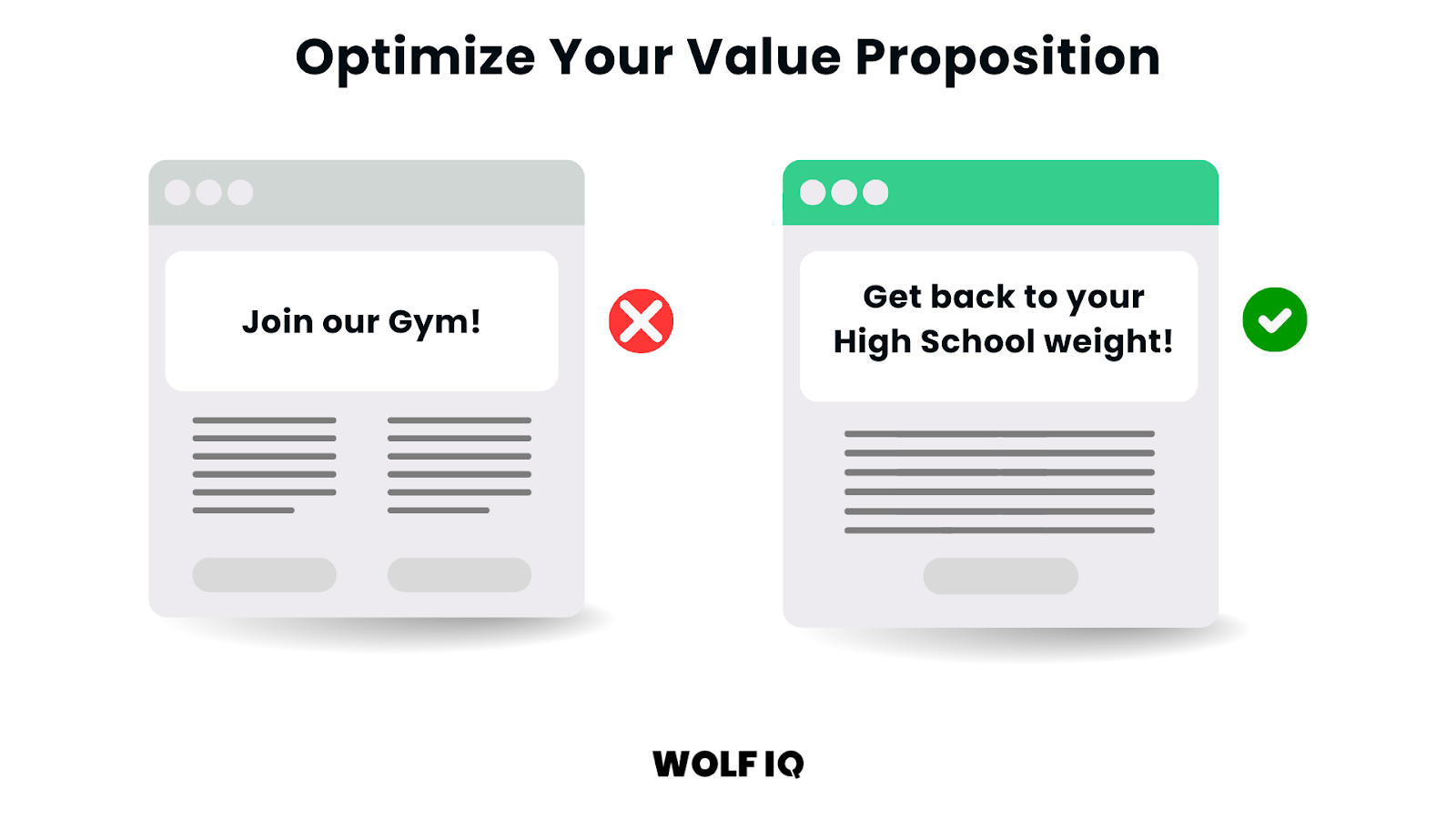
5. Remove Distractions
What it is: Strategic removal or modification of links and elements that take visitors away from your conversion goals, keeping them focused on taking desired actions.
Why it works: Research from Unbounce analysing over 20,000 landing pages found that conversion rates have an inverse relationship with the number of on-page links—the more links you have, the lower your conversion rate.
Every external link represents a potential exit point where you lose a prospect forever. Australian consumers appreciate direct, efficient experiences without unnecessary complications.
How to implement:
- Step 1: Audit all pages in your conversion funnel to identify external links and potential distractions
- Step 2: Remove or minimise navigation menus on dedicated landing pages and checkout processes
- Step 3: Set all external links to open in new tabs to preserve your conversion session
- Step 4: Eliminate sidebar widgets, social media feeds, and other attention-grabbing elements on conversion pages
- Step 5: Focus each page on a single, clear conversion goal with minimal alternative actions
Tools you'll need: Website analytics, heat mapping tools, link audit tools, content management system access
Pro tip: Create dedicated landing pages for paid advertising campaigns that eliminate all navigation and focus solely on the conversion goal. This can increase conversion rates by 25-50% compared to sending traffic to your general website pages.

6. Add Phone Numbers and Addresses
What it is: Prominent display of Australian phone numbers, business addresses, and local contact information to establish local presence and accessibility.
Why it works: Australian consumers show strong preference for supporting local businesses and want assurance that customer service will be accessible and culturally appropriate. Displaying local contact information increases trust and conversion rates by up to 25% for Australian businesses. It signals that you're a legitimate local operation rather than an overseas company with potentially poor customer service.
How to implement:
- Step 1: Obtain Australian phone numbers (1300, 1800, or local numbers) for customer service and sales
- Step 2: Display phone numbers prominently in website headers, footers, and contact sections
- Step 3: Include a complete Australian business address with suburb, state, and postcode
- Step 4: Add business hours in Australian time zones (AEST, ACST, AWST as appropriate)
- Step 5: Consider adding multiple contact methods, including email, phone, and live chat
Tools you'll need: Australian phone service provider, business registration documentation, website content management system
Pro tip: Include your Australian Business Number (ABN) on your website, particularly on checkout and contact pages. This provides additional legitimacy and is often required for B2B transactions.
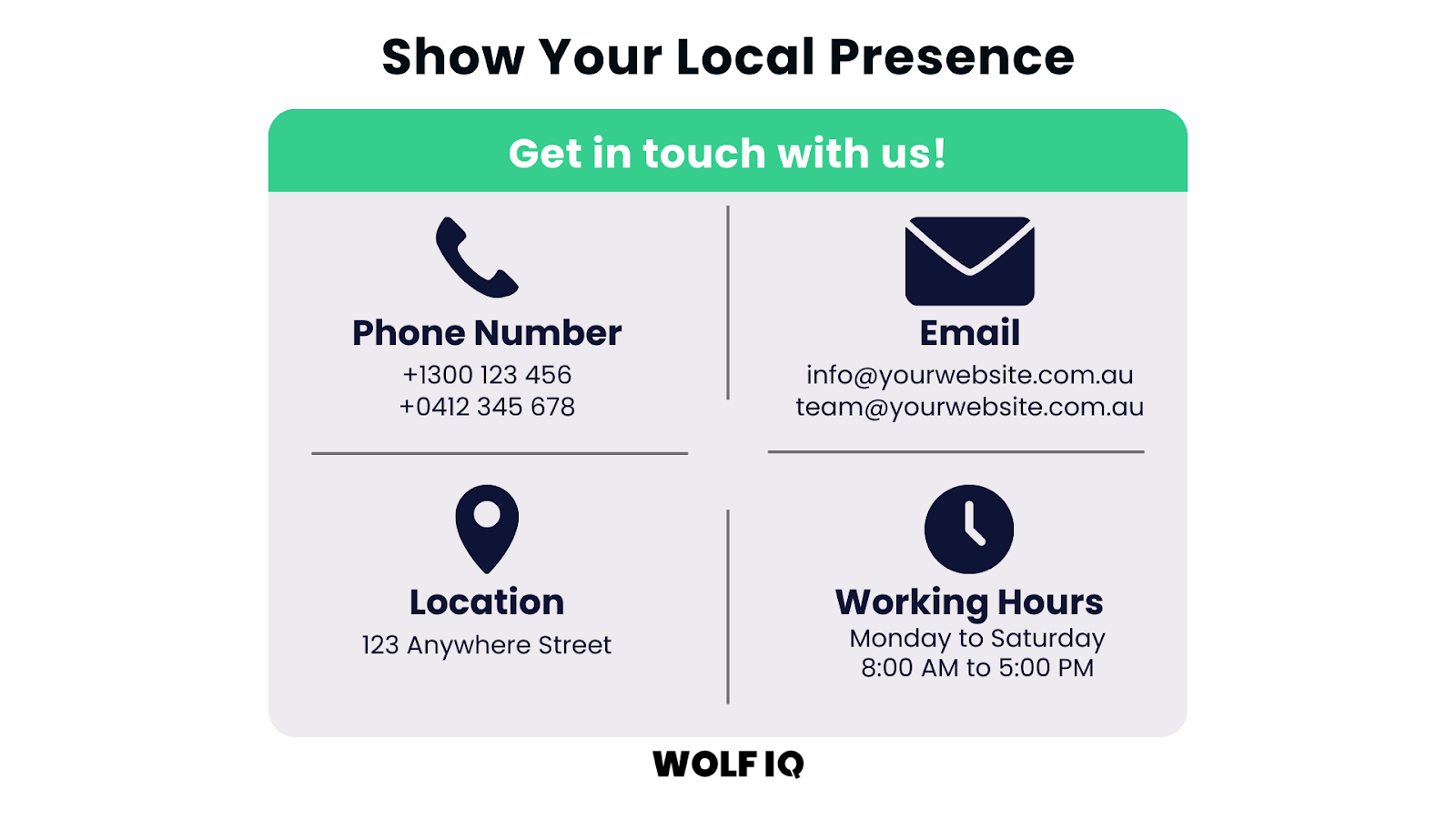
#2. User Experience & Design
7. Improve Forms for Completion
What it is: Strategic reduction and optimisation of form fields to minimise friction while collecting essential information needed for conversion and follow-up.
Why it works: Form optimisation can increase conversion rates by 120% or more by reducing abandonment and completion friction. Research shows that reducing form fields from 11 to 4 can increase conversions by 120%. Australian users are particularly sensitive to lengthy forms and data collection, especially given increased awareness of privacy rights under Australian privacy legislation.
How to implement:
- Step 1: Audit existing forms to identify which fields are truly essential vs. "nice to have"
- Step 2: Reduce form fields to the absolute minimum required for your conversion goal
- Step 3: Use smart field design including auto-complete, field validation, and progress indicators
- Step 4: Implement progressive profiling to collect additional information over time rather than upfront
- Step 5: Add clear privacy statements and explain how collected information will be used
Tools you'll need: Form builder software (Jotform, Typeform, or Gravity Forms), analytics tracking, A/B testing tools, privacy compliance documentation
Pro tip: Use single-column form layouts and ensure forms are fully optimised for mobile devices. Australian mobile usage is particularly high, and mobile form completion rates can be dramatically improved with proper optimisation.

8. Improve Your Call-to-Action Buttons
What it is: Strategic design and copywriting of action buttons that clearly communicate value and motivate visitors to take the next step in your conversion process.
Why it works: Call-to-action (CTA) optimisation can increase conversion rates by 161% through better design, placement, and messaging. The CTA button is often the final decision point in the conversion process, making its optimisation critical for success. Australian consumers respond well to direct, honest language that clearly communicates what will happen when they click.
How to implement:
- Step 1: Use action-oriented language that describes the benefit rather than the action (e.g., "Get My Free Quote" instead of "Submit")
- Step 2: Choose contrasting colours that make buttons stand out from the rest of your page design
- Step 3: Make buttons large enough to be easily clickable on mobile devices (minimum 44px height)
- Step 4: Position CTAs prominently above the fold and at natural decision points throughout your content
- Step 5: Test different button text, colours, and sizes to polish performance
Tools you'll need: Website design tools, A/B testing platform, colour contrast checkers, mobile testing tools
Pro tip: Create urgency without being pushy by using time-sensitive language like "Get instant access" or "Start today." Australian consumers appreciate directness but dislike high-pressure sales tactics.

9. Improve Website Loading Speed
What it is: Technical optimisation of website performance to ensure pages load quickly across all devices and connection types, particularly important for Australian regional areas.
Why it works: Page speed directly impacts conversion rates, with a 1-second delay in loading time reducing conversions by 7%.
How to implement:
- Step 1: Test current website speed using tools like Google PageSpeed Insights
- Step 2: Compress images and use appropriate formats (WebP where supported)
- Step 3: Implement caching solutions and Content Delivery Network (CDN) with Australian servers
- Step 4: Minimise HTTP requests by combining CSS and JavaScript files
- Step 5: Choose Australian-based hosting or ensure your hosting provider has Australian data centers
Tools you'll need: Website speed testing tools, image optimisation software, CDN service, caching plugins, hosting provider
Pro tip: Prioritise mobile speed optimisation since over 60% of all web traffic comes from mobile devices.
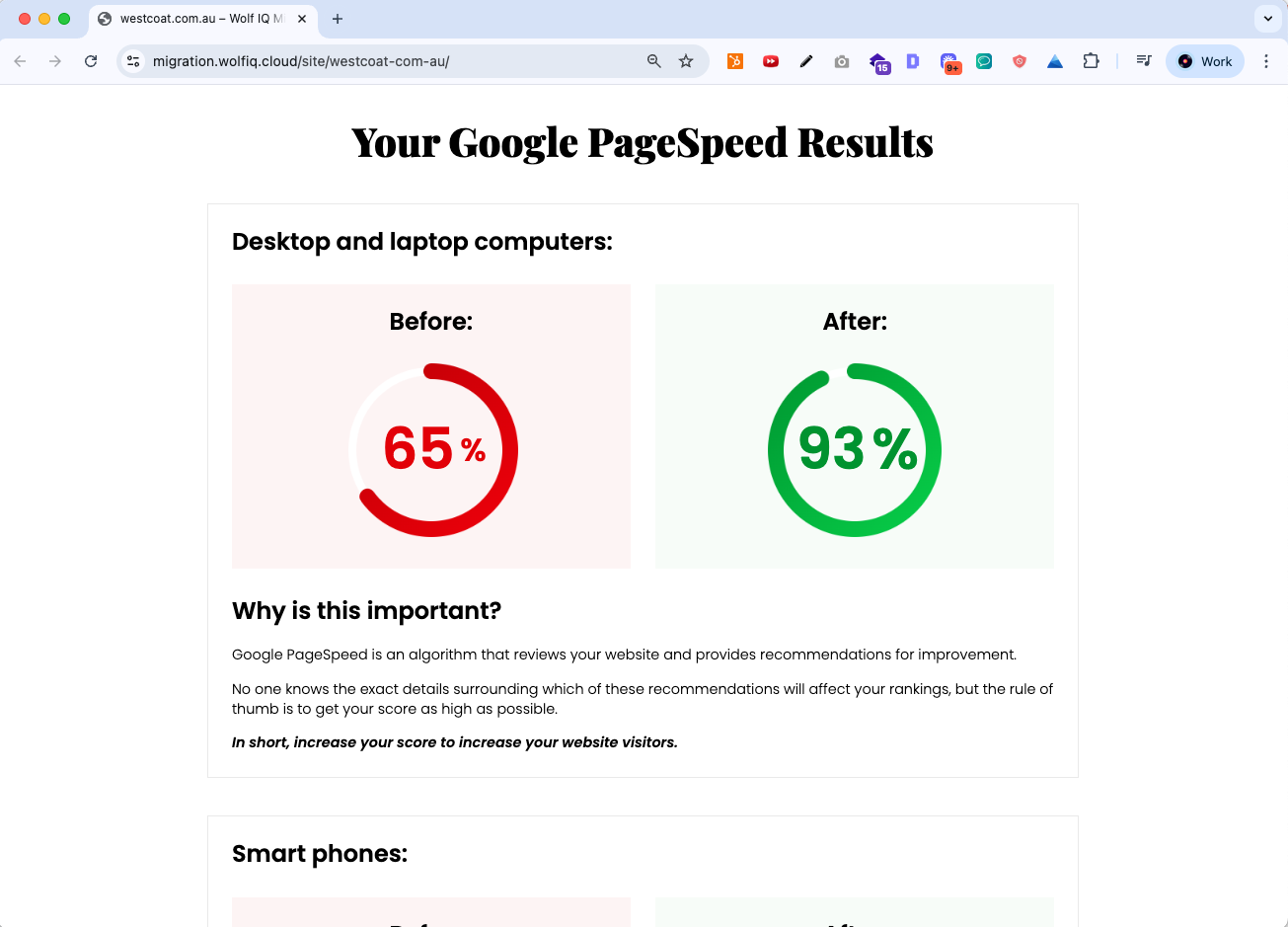
10. Optimise for Mobile Conversions
What it is: Comprehensive optimisation of website design, functionality, and conversion processes specifically for mobile devices and touch interfaces.
Why it works: Australian mobile usage rates are among the highest globally, making mobile optimisation a competitive necessity rather than an option.
How to implement:
- Step 1: Implement responsive design that adapts seamlessly to all screen sizes
- Step 2: Optimise touch interfaces with appropriately sized buttons and touch targets
- Step 3: Simplify navigation for mobile with collapsible menus and clear hierarchy
- Step 4: Improve forms for mobile with appropriate input types and minimal typing required
- Step 5: Test checkout and conversion processes thoroughly on actual mobile devices
Tools you'll need: Responsive design framework, mobile testing tools, touch interface testing, mobile analytics
Pro tip: A mobile-first design approach ensures that your website delivers an optimal experience for mobile users while maintaining adaptability for larger screens.
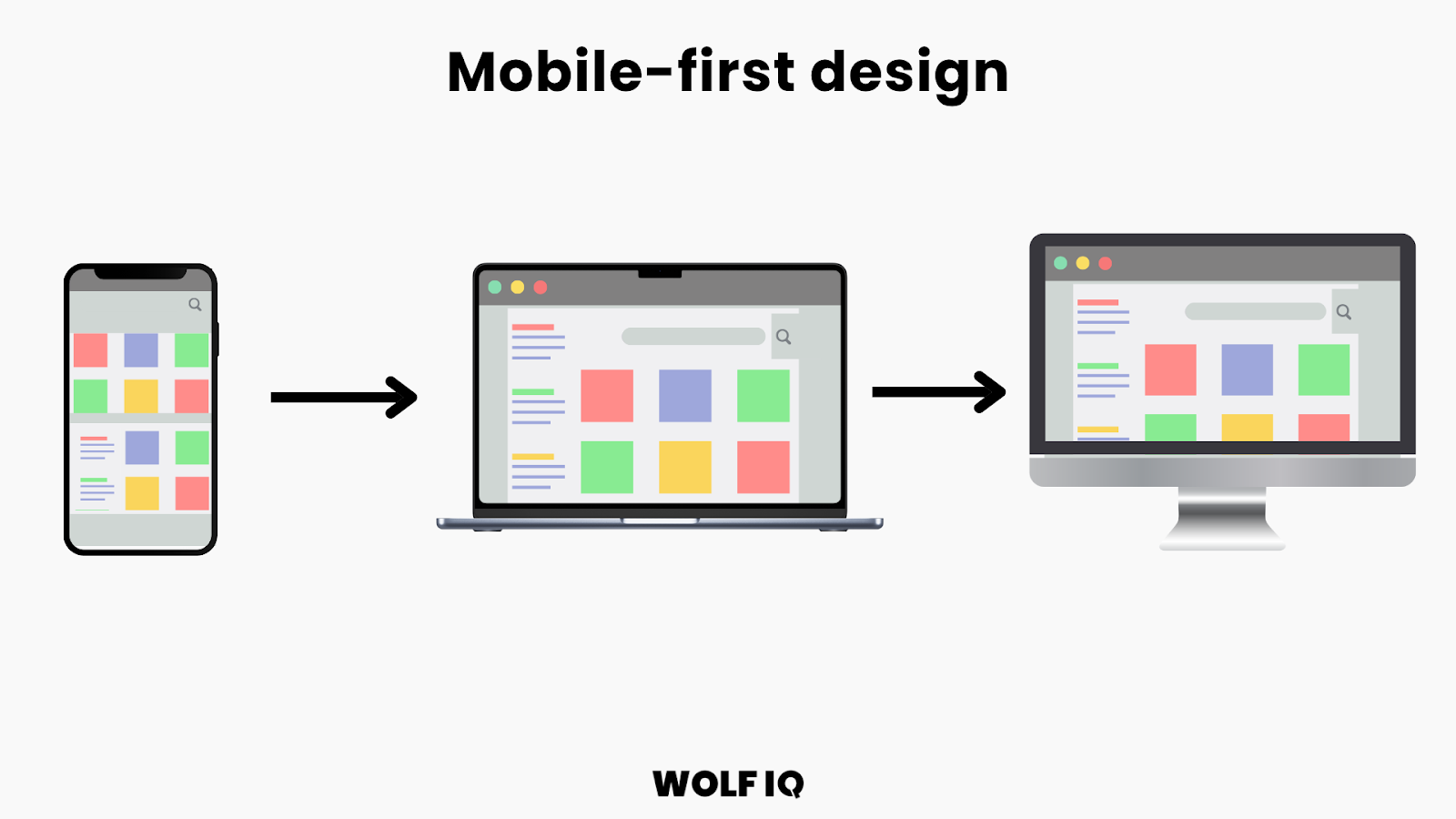
11. Simplify Navigation and User Flow
What it is: Strategic simplification of website navigation and user pathways to reduce friction and guide visitors efficiently toward conversion goals.
Why it works: Complex navigation creates decision paralysis and increases bounce rates. Simplified navigation can improve conversion rates by making it easier for visitors to find what they need and complete desired actions.
How to implement:
- Step 1: Identify most common navigation patterns for your industry
- Step 2: Reduce main navigation menu items to 7 or fewer primary categories
- Step 3: Create clear conversion pathways with logical step-by-step progression
- Step 4: Implement breadcrumb navigation to help users understand their location and path
- Step 5: Use clear, descriptive labels that match user expectations and search terms
Tools you'll need: Website analytics, user behaviour tracking tools, navigation testing tools, site mapping software
Pro tip: There are well-trodden paths for website navigation that users expect. You can break the rules, but for most businesses it makes far better sense to stick to the basics.
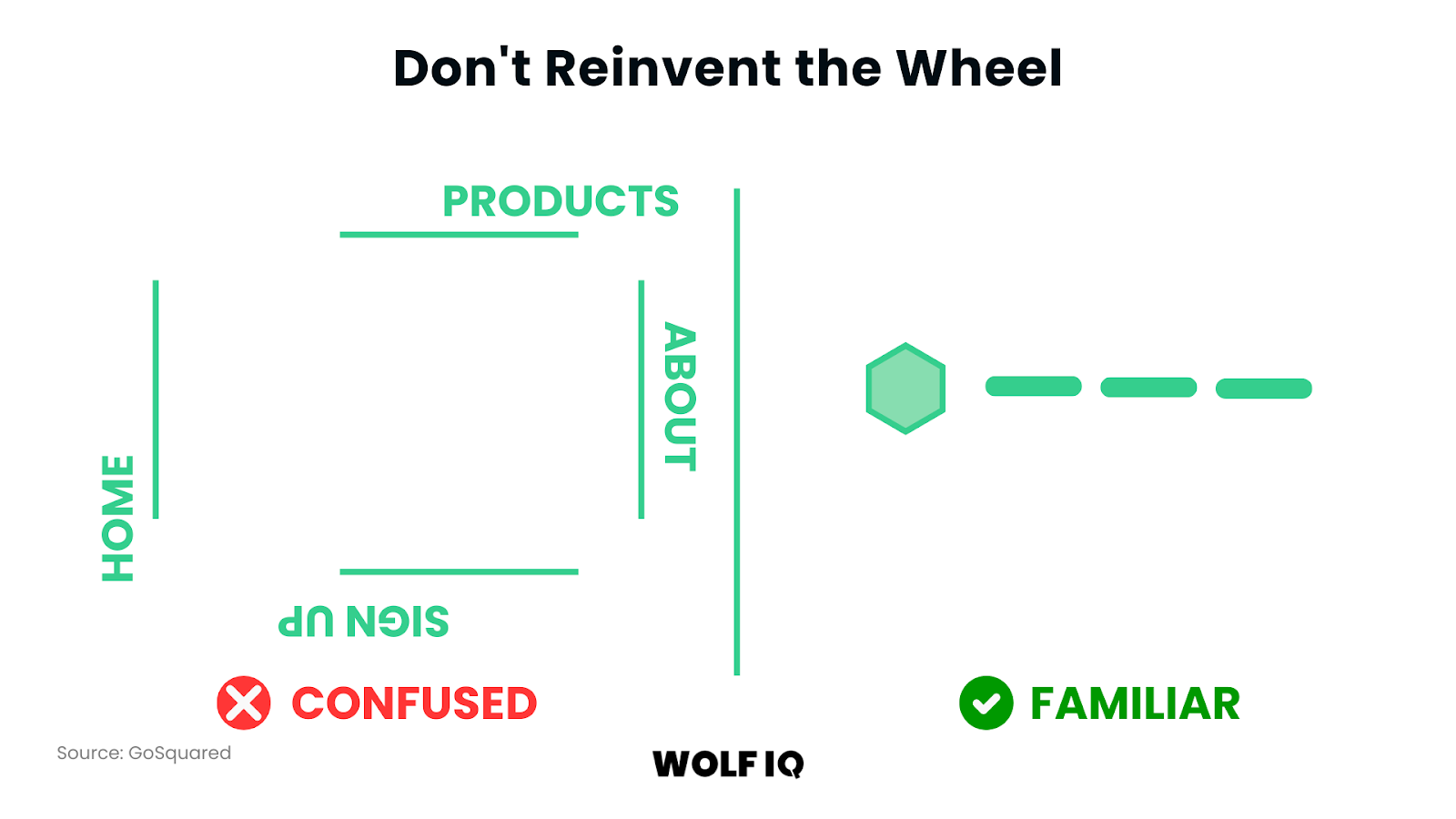
#3. Psychology & Persuasion
12. Create Urgency and Scarcity
What it is: Strategic use of time-limited offers, limited quantities, or exclusive access to motivate immediate action rather than delayed decision-making.
Why it works: Urgency and scarcity tap into the psychological principle of loss aversion—people are more motivated to avoid losing an opportunity than to gain something. When applied authentically, urgency can increase conversion rates by 30-50% by encouraging immediate action rather than "I'll think about it" responses that rarely convert.
How to implement:
- Step 1: Create genuine limited-time offers with clear expiration dates and countdown timers
- Step 2: Display real inventory levels for products with limited stock availability
- Step 3: Offer exclusive access or early-bird pricing for new products or services
- Step 4: Use language that emphasises the cost of delay rather than just the benefit of acting now
- Step 5: Ensure all urgency claims are truthful and can be substantiated
Tools you'll need: Countdown timer plugins, inventory management systems, email marketing platforms, analytics tracking
Pro tip: Combine urgency with clear value propositions. Instead of just "Limited time offer," use "Save $200 this week only" or "Only 3 spots left in our January workshop."
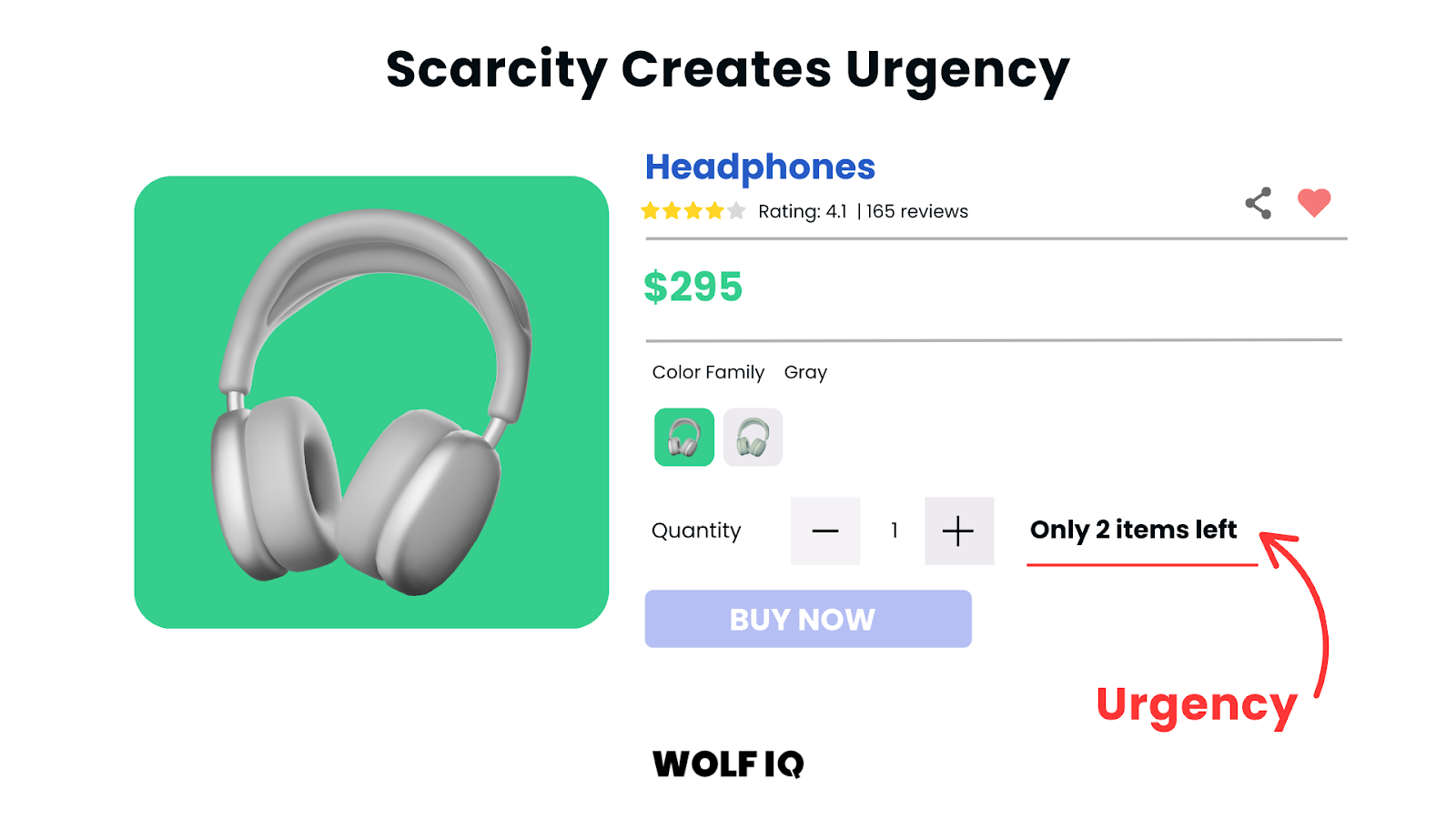
13. Add Exit-Intent Popups
What it is: Targeted popups that appear when visitors show intent to leave your website, offering last-chance value propositions or capturing contact information.
Why it works: Exit-intent popups can recover 10-15% of abandoning visitors by providing a final opportunity to convert or capture leads. They work because they target visitors who have already demonstrated interest by spending time on your site but haven't yet converted.
How to implement:
- Step 1: Set up exit-intent detection technology that triggers when users move toward the browser's close button
- Step 2: Create compelling offers that provide immediate value (discounts, free resources, consultations)
- Step 3: Design popups that are visually appealing but not intrusive or annoying
- Step 4: Include easy close options and ensure popups don't appear repeatedly to the same visitor
- Step 5: A/B test different offers, designs, and timing to optimise performance
Tools you'll need: Exit-intent pop-up software (OptinMonster, Hello Bar, or Sleeknote), email marketing integration, A/B testing tools, analytics tracking
Pro tip: Use exit-intent popups to address common objections or concerns. For example, if visitors are leaving pricing pages, offer a pop-up with "Questions about pricing? Contact us now!"
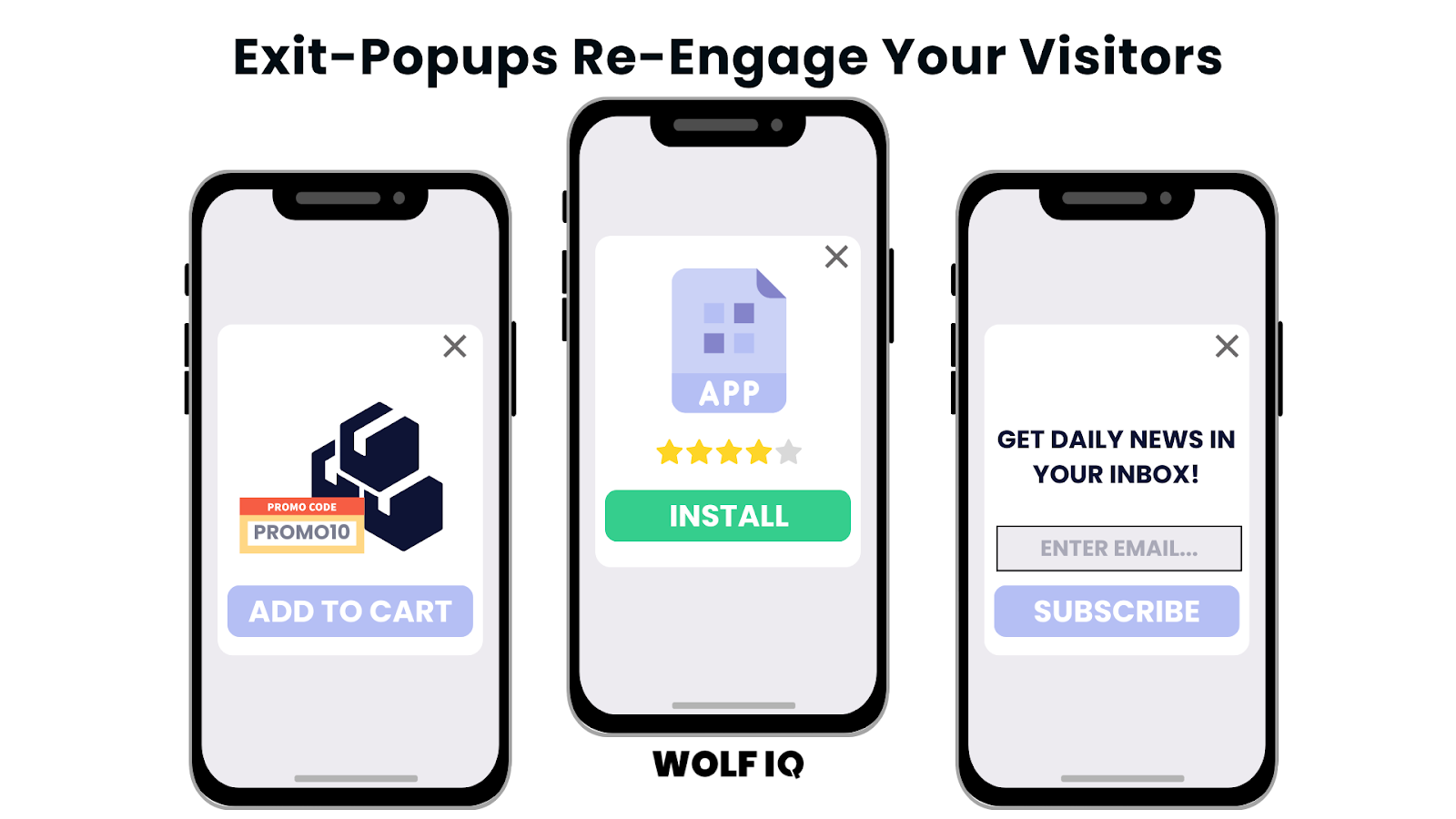
14. Apply Progressive Disclosure
What it is: Strategic revelation of information in stages to avoid overwhelming visitors while gradually building commitment and interest.
Why it works: Progressive disclosure reduces cognitive load and prevents decision paralysis by presenting information in digestible chunks. This approach can increase conversion rates by 25-40% by making complex decisions feel more manageable.
How to implement:
- Step 1: Break complex information into logical stages or steps
- Step 2: Use expandable sections, tabs, or multi-step processes to reveal information progressively
- Step 3: Start with the most compelling or relevant information to maintain interest
- Step 4: Include progress indicators to show visitors how much more information remains
- Step 5: Allow visitors to go back and review previous steps easily
Tools you'll need: Web development tools, user interface design software, analytics tracking, user testing tools
Pro tip: Use progressive disclosure for pricing information, starting with basic packages and revealing more detailed options as interest increases. This prevents sticker shock while allowing interested prospects to explore premium options.

15. Utilise Social Proof Psychology
What it is: Strategic display of evidence that other people have successfully used and benefited from your products or services, leveraging the psychological tendency to follow others' behaviour.
Why it works: Social proof is one of the most powerful conversion drivers, with various forms of social proof increasing conversion rates by 15-300% depending on implementation. Australians particularly value peer recommendations and authentic experiences from people they can relate to.
How to implement:
- Step 1: Display customer count numbers ("Join 10,000+ satisfied customers")
- Step 2: Show recent purchase notifications or activity feeds
- Step 3: Feature user-generated content like photos and reviews
- Step 4: Highlight media mentions, awards, or industry recognition
- Step 5: Create case studies showcasing specific customer success stories
Tools you'll need: Customer feedback collection tools, social media monitoring, notification software, content creation tools
Pro tip: Use specific numbers and details in social proof rather than vague claims. "Sarah from Melbourne increased her sales by 40% in 3 months" is more powerful than "Customers love our service."
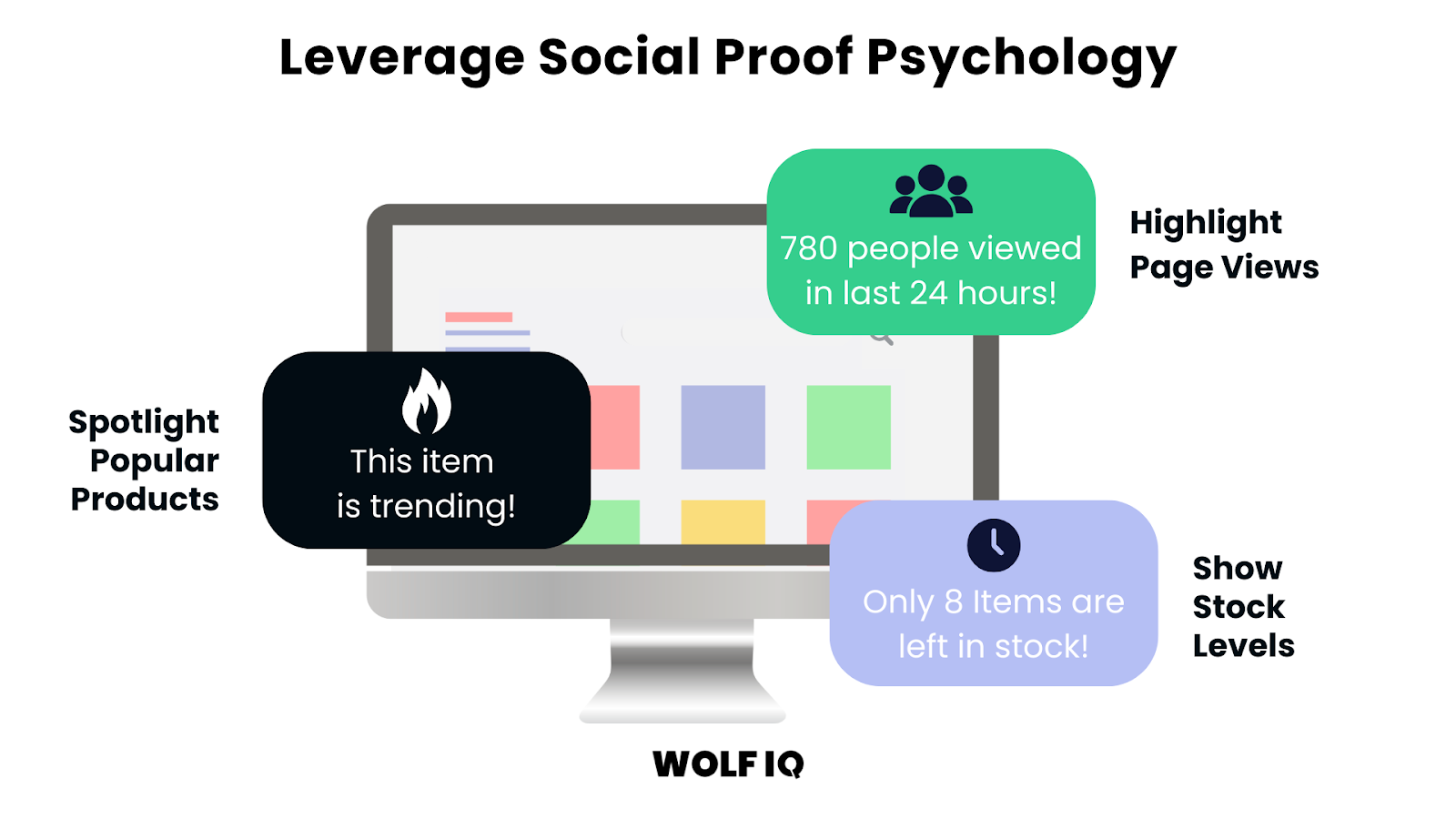
16. Apply Loss Aversion Principles
What it is: Framing offers and guarantees to emphasise what customers might lose by not acting, rather than just what they might gain.
Why it works: Loss aversion is a powerful psychological principle where people are roughly twice as motivated to avoid losses as they are to achieve equivalent gains. Properly applied loss aversion can increase conversion rates by 25-50% by reframing the decision-making process.
How to implement:
- Step 1: Offer strong money-back guarantees that remove purchase risk
- Step 2: Frame benefits in terms of what customers will miss without your solution
- Step 3: Use risk-reversal language that puts the risk on your business rather than the customer
- Step 4: Highlight the cost of inaction or delay in addressing their problem
- Step 5: Provide free trials that let customers experience value before committing
Tools you'll need: Legal consultation for guarantee terms, copywriting tools, policy documentation, customer service systems
Pro tip: Make guarantees specific and easy to understand. "100% money-back guarantee within 30 days, no questions asked" is more powerful than vague satisfaction promises.
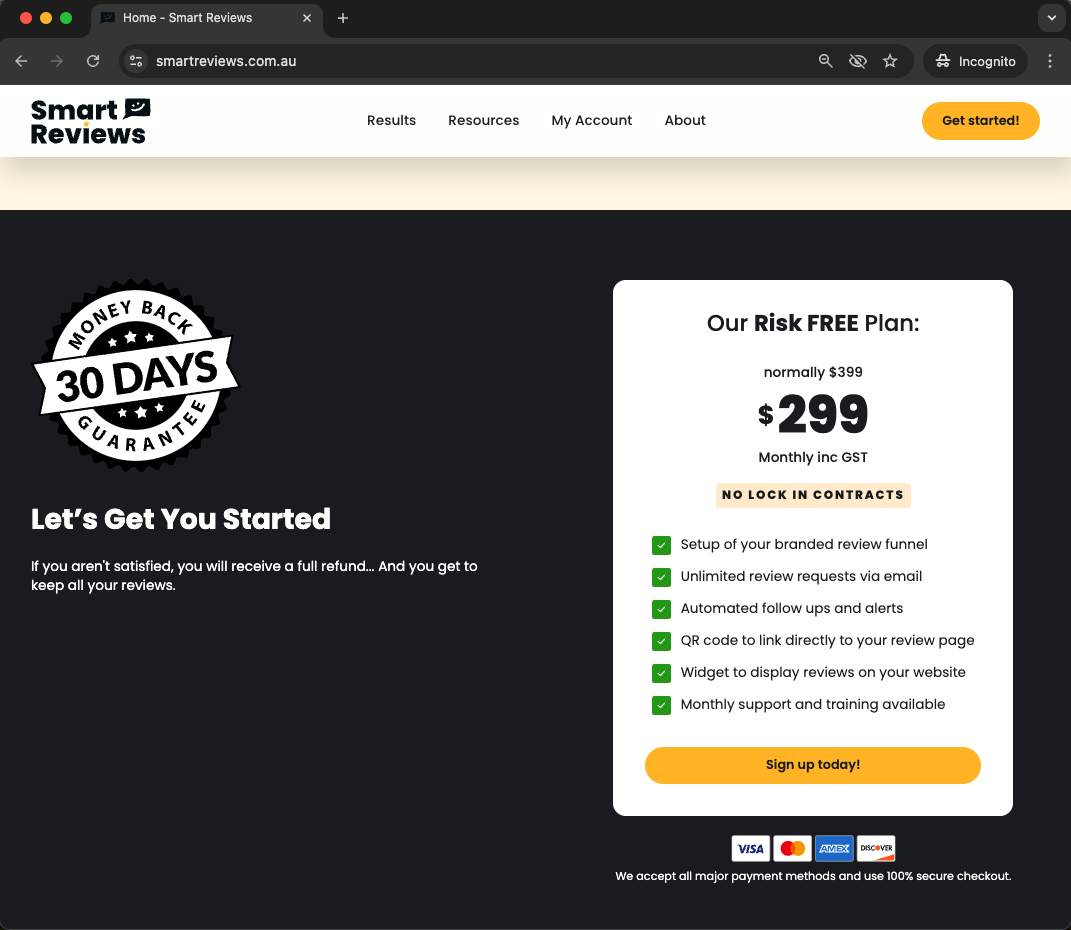
#4. Technical & Performance
17. Optimise Checkout Process
What it is: Comprehensive optimisation of the purchase process to minimise abandonment and maximise completion rates through reduced friction and improved user experience.
Why it works: Cart abandonment rates average 69.23% globally, meaning checkout optimisation represents one of the largest conversion opportunities for e-commerce businesses. Even small improvements in checkout flow can increase conversion rates by 35% or more by reducing the barriers between purchase intent and completion.
How to implement:
- Step 1: Implement guest checkout options that don't require account creation
- Step 2: Reduce checkout steps to the absolute minimum required for order completion
- Step 3: Add multiple payment options, including Australian preferences like BPAY, Afterpay, and Zip
- Step 4: Display security badges and trust signals prominently during checkout
- Step 5: Provide clear progress indicators and easy navigation between checkout steps
Tools you'll need: E-commerce platform, payment gateway integrations, SSL certificates, analytics tracking
Pro tip: ‘Express checkouts’ can be a big win on conversion, by making it simpler and easier for visitors to pay and limit abandonment from having to fill out forms.
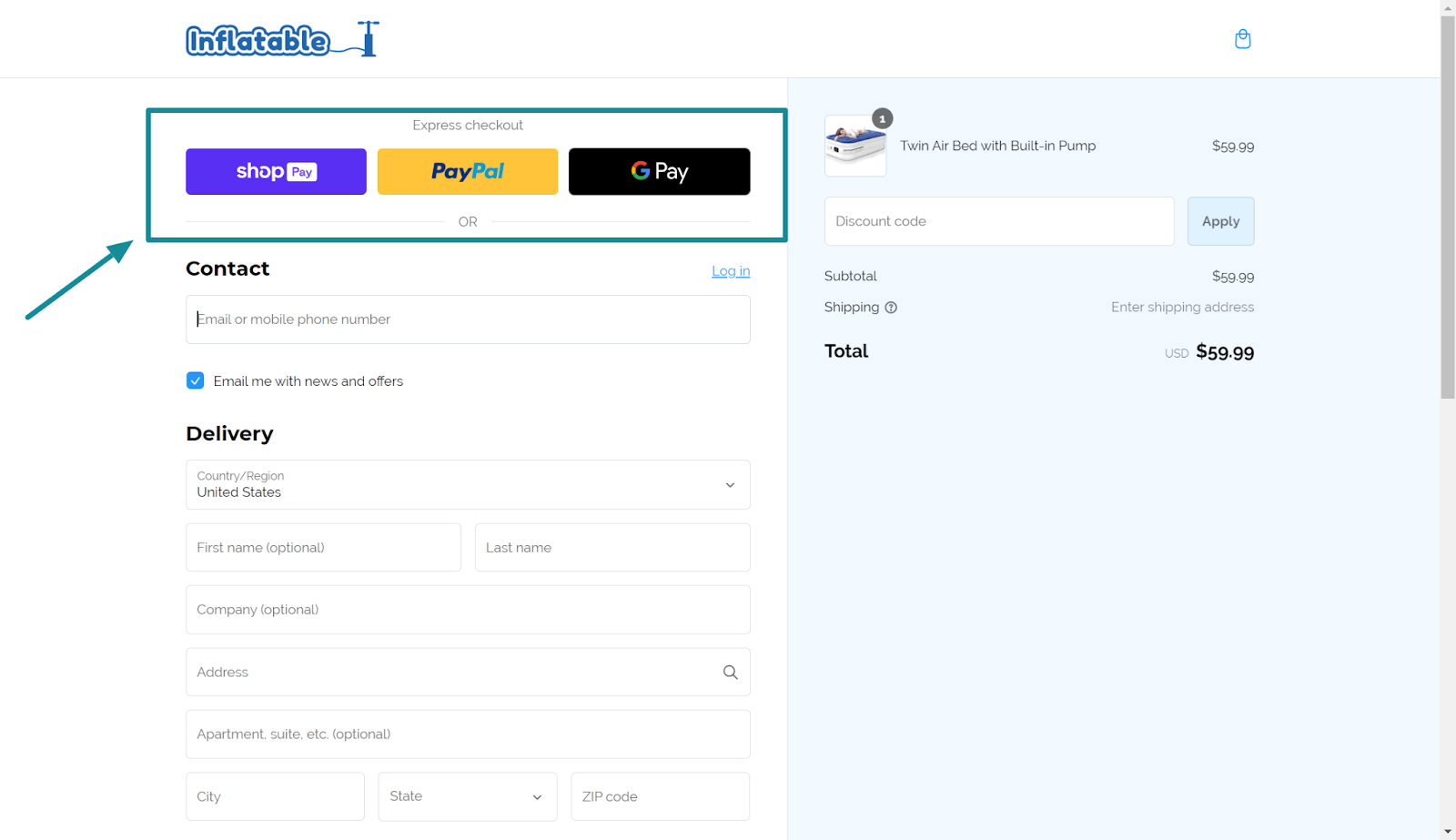
18. Implement A/B Testing
What it is: Systematic testing methodology that compares different versions of web pages, elements, or processes to determine which performs better for conversion goals.
Why it works: A/B testing removes guesswork from conversion optimisation by providing statistical evidence of what works best for your specific audience. Businesses that implement systematic A/B testing see average conversion rate improvements of 20-25% within the first year.
How to implement:
- Step 1: Choose A/B testing platform that integrates with your website and analytics
- Step 2: Identify high-impact elements to test (headlines, CTAs, forms, pricing)
- Step 3: Create hypotheses based on data and user feedback rather than assumptions
- Step 4: Run tests for statistically significant periods with adequate sample sizes
- Step 5: Implement winning variations and document learnings for future tests
Tools you'll need: A/B testing platform (Optimizely, VWO), analytics integration, statistical significance calculators
Pro tip: Start with high-traffic, high-impact pages like homepage and key landing pages. Focus on testing one element at a time to clearly identify what drives improvement.
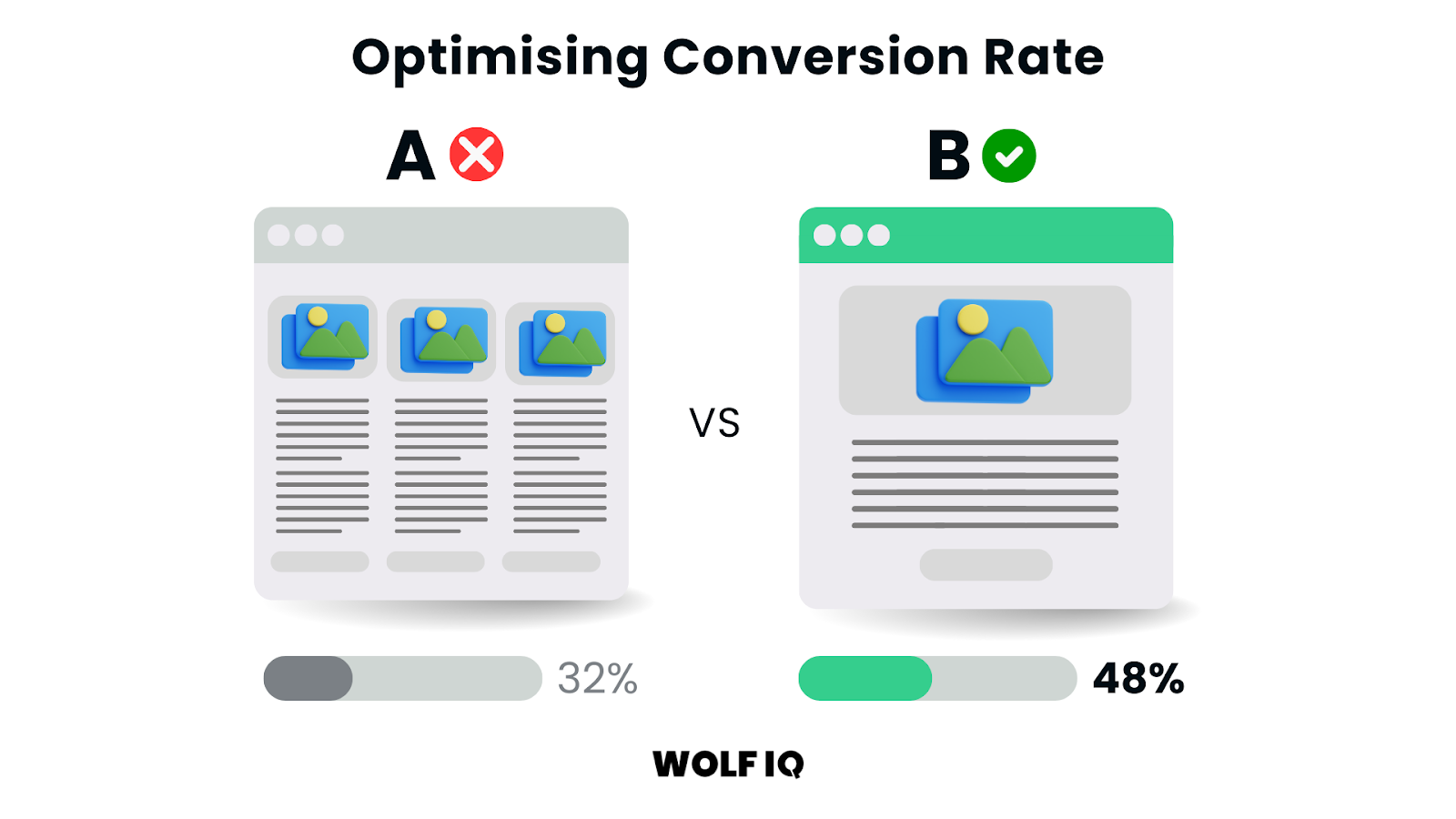
19. Add Retargeting Pixels
What it is: Implementation of tracking codes that allow you to show targeted advertisements to people who have visited your website but haven't converted.
Why it works: Retargeting can increase conversion rates by 150% or more by re-engaging visitors who showed initial interest but didn't complete desired actions. Most visitors don't convert on their first visit, so retargeting provides additional opportunities to convert them with relevant messaging.
How to implement:
- Step 1: Install Facebook Pixel, Google Ads tracking, and other relevant platform pixels
- Step 2: Create custom audiences based on specific page visits and behaviours
- Step 3: Develop retargeting ad creative that addresses common objections or concerns
- Step 4: Set up conversion tracking to measure retargeting campaign effectiveness
- Step 5: Create sequential messaging that provides different value propositions over time
Tools you'll need: Advertising platform accounts, pixel installation tools, ad creative development, campaign management
Pro tip: Create different retargeting audiences based on how far visitors progressed in your conversion funnel. Someone who viewed pricing needs different messaging than someone who abandoned a shopping cart.

20. Strengthen Thank You Pages
What it is: Strategic optimisation of post-conversion pages to maximise additional value, encourage sharing, and build ongoing customer relationships.
Why it works: Thank you pages represent a missed opportunity for most businesses. Visitors on thank you pages have just converted and are in a positive, engaged state. Thank you pages can increase customer lifetime value by 20-30% through upsells, referrals, and engagement.
How to implement:
- Step 1: Create compelling thank you page content that reinforces the value of their decision
- Step 2: Include clear next steps or onboarding information to maximise value from their purchase
- Step 3: Add social sharing buttons to encourage referrals and word-of-mouth marketing
- Step 4: Offer relevant upsells or complementary products/services
- Step 5: Collect feedback or additional information that can improve future conversions
Tools you'll need: Website content management, social sharing plugins, feedback collection tools, analytics tracking
Pro tip: Include a personal video message from the business owner or team thanking the customer. This personal touch resonates particularly well with Australian consumers who value authentic relationships.
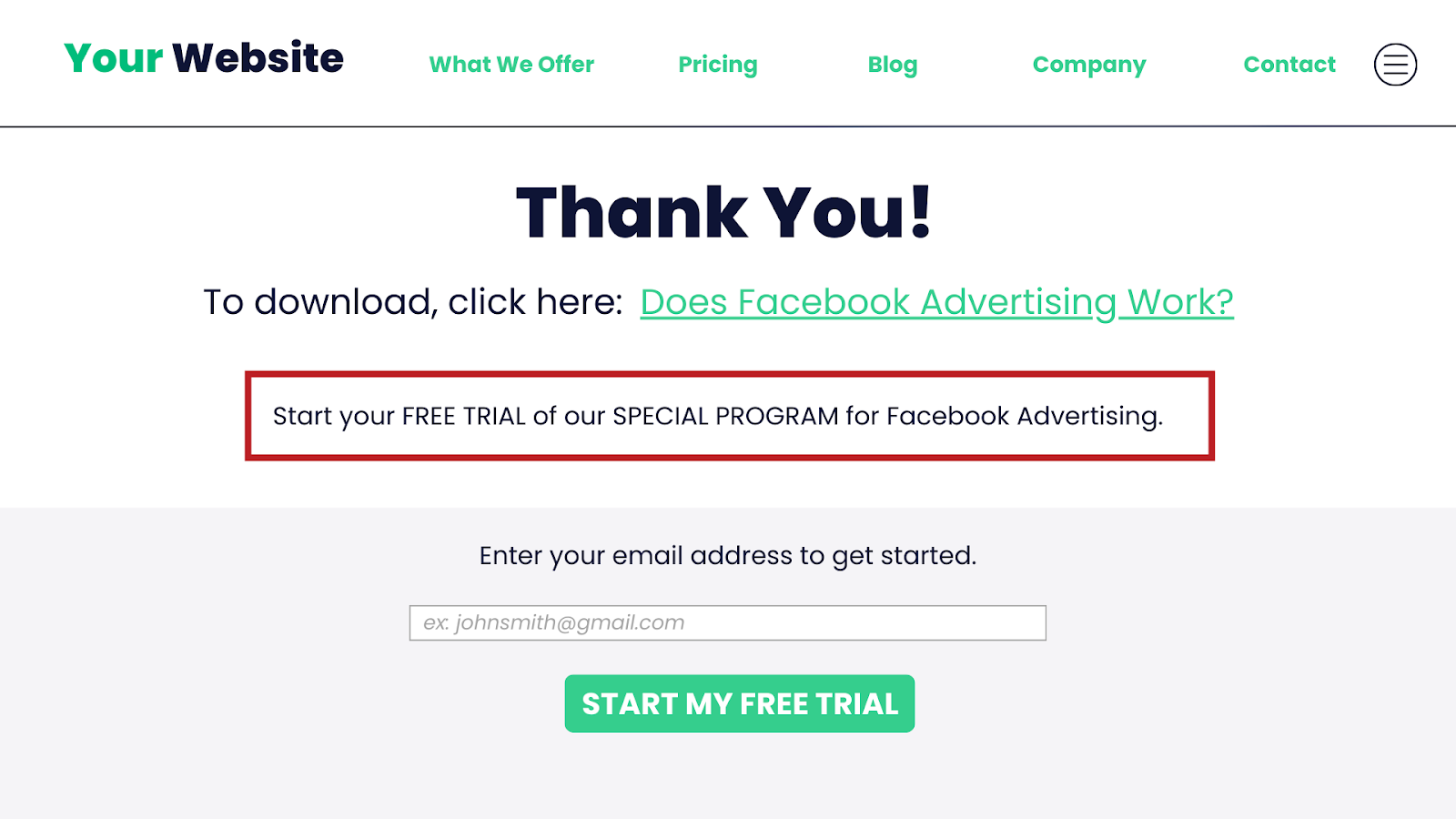
21. Use Heat Mapping and Analytics
What it is: Implementation of tools that track and visualise how visitors interact with your website, including where they click, scroll, and spend time.
Why it works: Heat mapping and behavioural analytics provide insights that traditional analytics miss, revealing why visitors aren't converting and where optimisation opportunities exist.
How to implement:
- Step 1: Install heat mapping tools like Hotjar, Crazy Egg, or Microsoft Clarity
- Step 2: Set up click tracking, scroll mapping, and session recordings on key pages
- Step 3: Analyse data to identify patterns in user behaviour and potential friction points
- Step 4: Create hypotheses for improvements based on behavioural insights
- Step 5: Use findings to inform A/B testing and optimisation priorities
Tools you'll need: Heat mapping software, analytics integration, data analysis tools
Pro tip: Pay particular attention to mobile heat maps since Australian mobile usage is so high. Mobile interaction patterns often differ significantly from desktop behaviour.
Microsoft Clarity is the most insightful tool here, helping you understand how visitors interact with your website through heatmaps, session recordings, and behavioural insights. This gives you insight into how your existing design is performing and what needs to be fixed.
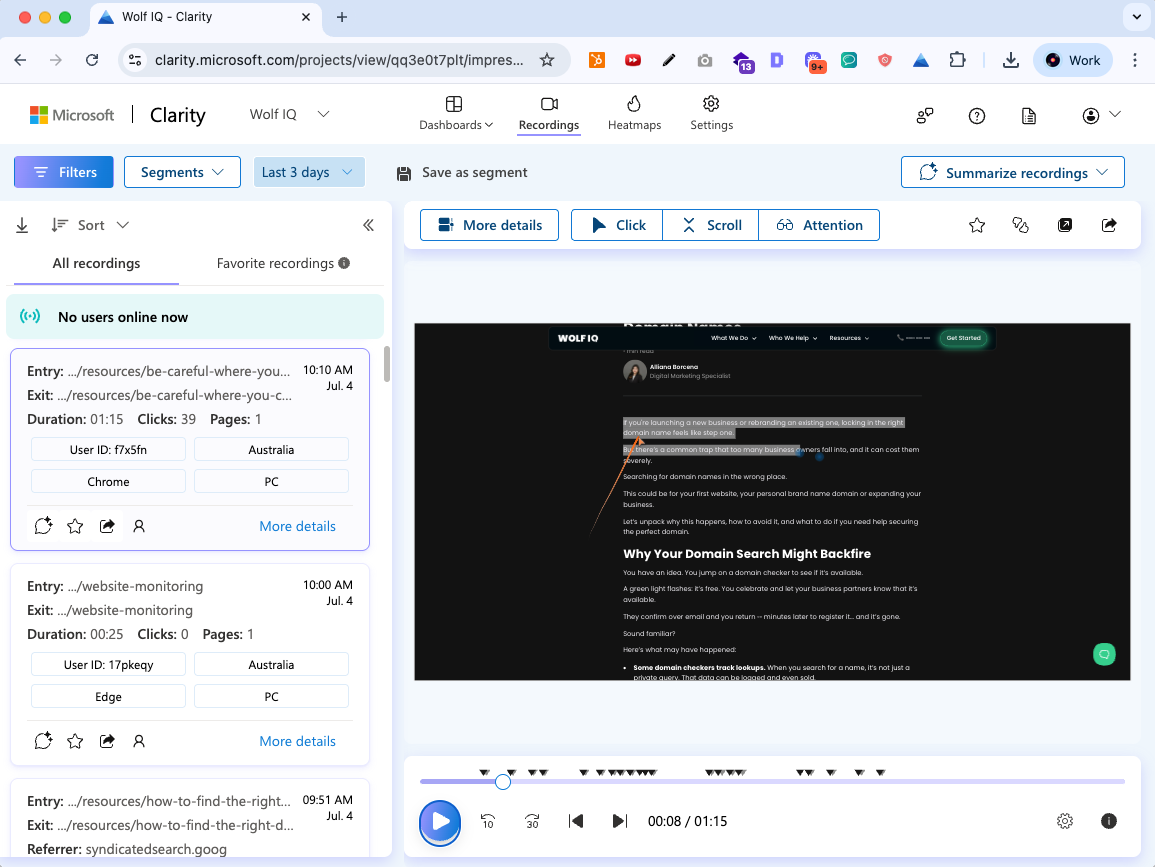
Conclusion
The 21 strategies in this guide provide a proven roadmap to increase website conversions — not just traffic.
Here are the key takeaways:
- Start with trust: Conversion begins with credibility. Nail the fundamentals — like social proof, security signals, and local presence — before layering on advanced tactics.
- Think like your customers: Show local relevance and simplify the journey.
- Focus on small tweaks that bring a big impact: You might not need a total redesign. A better headline, clearer CTA, or faster load time can be enough to move the needle.
- Test and refine: Every website is different. The real power of conversion optimisation lies in testing, tracking, and adapting based on real data.
If you're not sure where to begin, start with the highest-impact, lowest-effort wins in Section 1 — and build from there. Every percentage increase in conversion is a step toward more customers, at lower average costs, and stronger business results.
If you're looking for expert support along the way - Wolf IQ is here to help.
We’ve helped over 250 Australian businesses turn underperforming websites into conversion powerhouses.
Call us on 1300 072 134 or book a free strategy session to see how we can help you get found, get trusted, and get chosen by your future customers.
Wolf IQ helps hundreds of businesses win online each month.



.png)
.png)


.png)
.png)
.png)

.png)
.png)
.svg)
.svg)
.svg)

